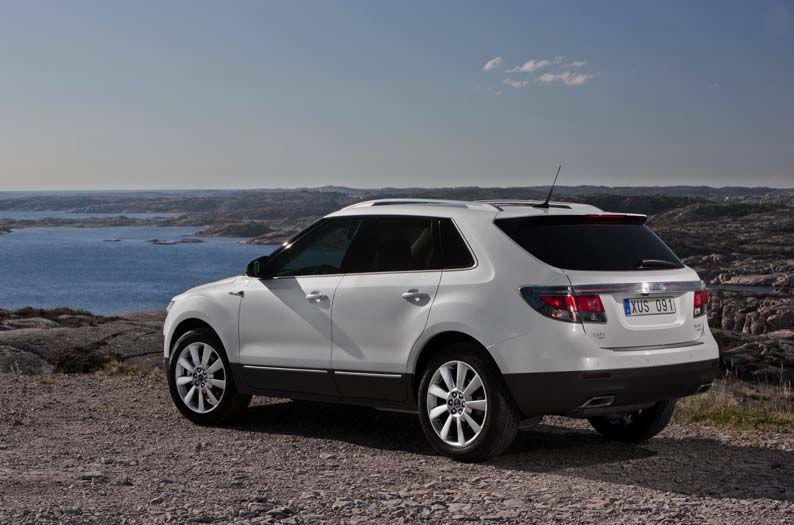The Crank: Is Saab Chairman’s optimism surreal or substantiated?
By John LeBlanc
As the cofounder of the perennially money-losing Dutch supercar operation Spyker, Saab Chairman Victor Muller fundamentally has to be an optimistic guy. Yet as he makes the rounds in the next few weeks drumming up customer interest in the new 9-4X crossover, left, and evaluating investor intentions to see whether or not Saab will enter the Swedish stock market in May, you have wonder where the hope in resuscitating the moribund General Motors orphan brand is coming from.
Right off the bat, Muller wants Saab to sell 80,000 cars globally in 2011 and 120,000 units in 2012 when he also targets a profit. Problem is, Saab only sold 31,696 vehicles last year —two (!) in Canada. (To put that in perspective, Toyota sold more Corollas in Canada than Saab did worldwide.) Secondly, the products that Muller is counting on to almost quadruple Saab’s sales —the existing 9-5 luxury sedan, said 9-4X crossover—are the same types of cars that no one wanted when Saab was under GM’s watch: restyled, mainstream GM engineering, priced like luxury German brands. Thirdly, its not like customers have been banging down the doors looking for Saabs. Even with virtually no inventory at its U.S. dealers, Wards Auto reported that Saab-Spyker ended last November with 269 days of supply, the largest inventory in the business
Saab will replace the ageing 9-3 in 2012 and is also holding “technology-sharing talks” with three vehicle makers to build a new version of its classic 92 compact car of the 1950s. But can the company survive until then? Is Muller’s optimism for naught?
What’s missing in my books is simple: beyond talks of moving the brand upmarket, Muller hasn’t stated yet what the “new” Saab brand means. For the past 20 years under GM’s watch, a steady decline in Saab sales proves it can’t continue with its current German-challenging positioning. Muller says the new 9-4X—a Mexican-made Cadillac SRX-clone—will compete with Audi’s Q5 and Q7 and BMW’s X3 and X5. But past experiences suggest that customers simply won’t pay German prices for Saab’s Swedish offerings.
Even Volvo has recently decided that chasing the Germans is a waste of time.
So why does Muller have any hope that Saab will not only survive, but also prosper?
Do you think that the brand needs a wholesale shift in its product and branding strategy?
Or is continuing on with the current Saab values enough to revive it back to life?
[Sources: Automotive News, Bloomberg, DesRosiers & Associates, Wards Auto]






![[del.icio.us]](https://www.straight-six.com/wp-content/plugins/bookmarkify/delicious.png)
![[Digg]](https://www.straight-six.com/wp-content/plugins/bookmarkify/digg.png)
![[Facebook]](https://www.straight-six.com/wp-content/plugins/bookmarkify/facebook.png)
![[Google]](https://www.straight-six.com/wp-content/plugins/bookmarkify/google.png)
![[Reddit]](https://www.straight-six.com/wp-content/plugins/bookmarkify/reddit.png)
![[StumbleUpon]](https://www.straight-six.com/wp-content/plugins/bookmarkify/stumbleupon.png)
![[Twitter]](https://www.straight-six.com/wp-content/plugins/bookmarkify/twitter.png)
![[Email]](https://www.straight-six.com/wp-content/plugins/bookmarkify/email.png)